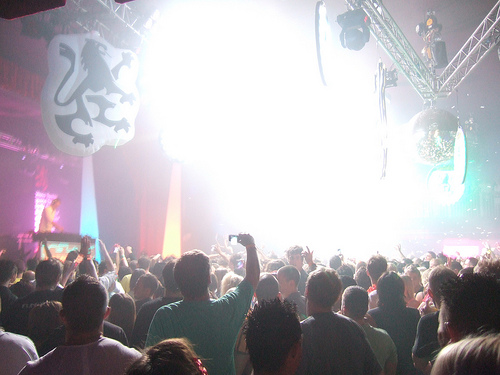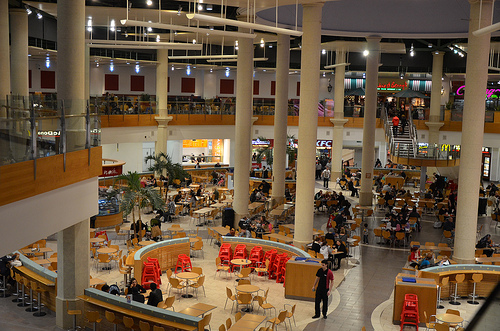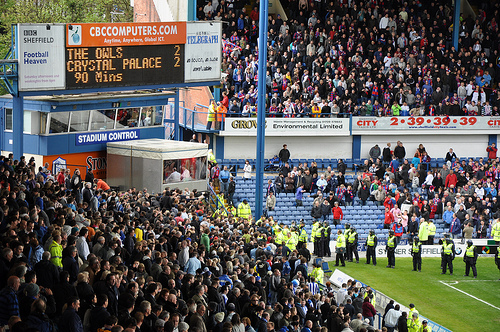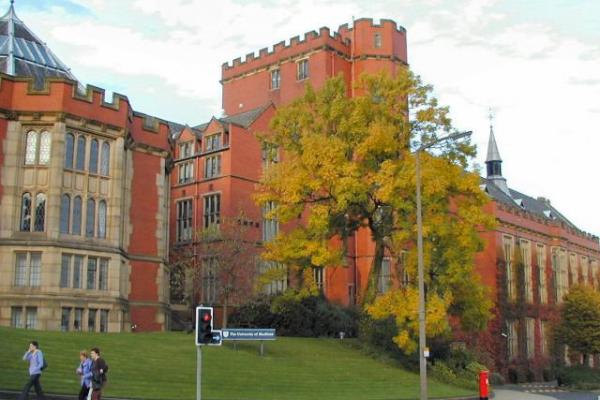City Profile: Guide to Sheffield
Quick Facts
Location: Northern England
County: South Yorkshire
Population: 534,500
Area: 368 sq. km
Sheffield is a city whose identity, like so many others in the UK, has been constantly changing throughout the last few centuries. During the 1800's, the area experienced a massive economic boom as it gained an international reputation in steel production and played a significant role in the Industrial Revolution. Indeed, in the space of fifty years, the northern town's population increased by ten times and, in turn, it was officially named as a city.
However, as the manufacturing industries fell away and died, the city started to struggle, until the 21st century brought extensive redevelopment in culture and environment. These days, the city's industrial roots are covered by the huge amounts of green space in Sheffield. Indeed, 61% of Sheffield's entire area is green space, over a third of the city lies within the Peak District National Park and it has the highest ratio of trees to people of any city in Europe.
Culture and Entertainment in Sheffield
Sheffield has all the entertainment venues and cultural things to do that you would expect from one of the UK's biggest cities. Indeed, it takes its cultural entertainment seriously,  with great music, theatre and comedy venues. For music there is the O2 Academy Sheffield (left) and the Don Valley stadium amongst many others, as well as a number of festivals which are held in the city throughout the year. Most famously, there is the Grim Up North Sheffield Comedy Festival and the Tramlines Music Festival. Equally, Sheffield benefits from having the largest theatre complex outside of London, which is made up of the Lyceum, the Crucible and the Studio Theatres.
with great music, theatre and comedy venues. For music there is the O2 Academy Sheffield (left) and the Don Valley stadium amongst many others, as well as a number of festivals which are held in the city throughout the year. Most famously, there is the Grim Up North Sheffield Comedy Festival and the Tramlines Music Festival. Equally, Sheffield benefits from having the largest theatre complex outside of London, which is made up of the Lyceum, the Crucible and the Studio Theatres.
The city also houses an array of museums and galleries, including the Weston Park Museum, the Millennium Galleries and a wide selection dedicated to the city's industrial heritage.
The architecture in Sheffield is almost unique amongst British cities, as it has comparatively few old buildings with any history, but a large number of beautiful and award winning buildings built in the last ten years.
Shopping in Sheffield
Whatever your preferences when shopping, Sheffield should meet them, with its several different shopping areas, each with their own identity and style. There is the standard pedestrian shopping area at Fargate which offers most of the high street shops right in the centre of Sheffield, on traditional cobbled streets. Similarly, ten minutes drive from the city centre, is Meadowhall (below), which is one of Europe's biggest shopping malls, offering over 270 stores, a cinema, and dozens of bars and restaurants.
Alternatively, if you are looking for more of a unique, quirky shopping experience, then  head to the Devonshire Quarter with its independent shops selling everything from vintage clothing and unusual gifts, to homestyle and high end fashion.
head to the Devonshire Quarter with its independent shops selling everything from vintage clothing and unusual gifts, to homestyle and high end fashion.
Eating Out in Sheffield
As you would expect, Sheffield has a myriad of different restaurants that should satisfy all tastes and budgets. For those who like their high end cuisine, the city boasts Michelin starred restaurants in the form of The Old Vicarage and Fischers. Equally, eating on a budget couldn't be easier, with hundreds of restaurants spread throughout the city catering for quick, cheap lunches or dinners. There are literally hundreds of pubs scattered around the countryside surrounding the city centre, for the truly British experience.
The city also prides itself on the range of restaurants offering different types of world food. From tapas, to Indian, to Italian, to Thai, Sheffield will have top restaurants that offer them all.
Transport in Sheffield
Sheffield is well connected to the rest of the country through road, rail and air. The M1 motorway offers a direct route to London in the south and Leeds in the north by car. Equally, from Sheffield railway station you can catch a fast, direct train to almost anywhere in the country, including Manchester, Liverpool, Birmingham and Scotland. What's more, high speed trains take you in to the centre of London in just a couple of hours.
The closest airport- Doncaster Sheffield Airport, is less than twenty miles from the city centre and has flights arriving and leaving for destinations all over the world.
Sport in Sheffield
Sheffield is proud of its long sporting heritage, and still has top class teams in a number of different sports. Perhaps the city's biggest historical sporting claim to fame, is that the  world's first ever official football club was formed in the city. Sheffield FC was created in 1857, closely followed by the world's second oldest club, Hallam FC. These days, there are two major teams in the city- Sheffield Wednesday and Sheffield United. Both have an illustrious history, but are equally now both struggling in the third tier of English football. Despite, this they both still draw large crowds week (see left) in week out to their stadiums, and are well worth a visit.
world's first ever official football club was formed in the city. Sheffield FC was created in 1857, closely followed by the world's second oldest club, Hallam FC. These days, there are two major teams in the city- Sheffield Wednesday and Sheffield United. Both have an illustrious history, but are equally now both struggling in the third tier of English football. Despite, this they both still draw large crowds week (see left) in week out to their stadiums, and are well worth a visit.
Away from football, one of the biggest sporting events that the city hosts each year is the World Snooker Championships, which are held annually at the Crucible Theatre. Sheffield also boasts top class teams in rugby league, rugby union, ice hockey and basketball.
As befits a city with such a strong grounding in sport, Sheffield was the UK's first National City of Sport and is now home to the English Institute of Sport, where British athletes are training for the 2012 Olympics.
Universities in Sheffield
 |
University of SheffieldThe University of Sheffield attracts students from over 120 countries thanks to its global reputation for teaching and research.... |
|













